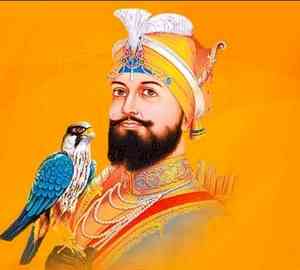Veer Bal Diwas: Honouring martyrdom of Sahibzadas Zorawar Singh, Fateh Singh
Every year, December 26 is observed as Veer Bal Diwas, a solemn day to honour the unparalleled courage and supreme sacrifice of Sahibzada Zorawar Singh and Sahibzada Fateh Singh, the young sons of Guru Gobind Singh, the tenth and final Sikh Guru. Prime Minister Narendra Modi in January 2022 officially designated the day as a tribute to the Sahibzadas.

New Delhi, Dec 25 (IANS) Every year, December 26 is observed as Veer Bal Diwas, a solemn day to honour the unparalleled courage and supreme sacrifice of Sahibzada Zorawar Singh and Sahibzada Fateh Singh, the young sons of Guru Gobind Singh, the tenth and final Sikh Guru. Prime Minister Narendra Modi in January 2022 officially designated the day as a tribute to the Sahibzadas.
The story of Sahibzada Zorawar Singh and Sahibzada Fateh Singh, Guru Gobind Singh's younger sons, stands as one of the most heart-rending and inspiring chapters in Sikh history. Their martyrdom in December 1704 represents the ultimate sacrifice for their faith and principles at the tender ages of 9 and 6.
The events unfolded during the early 18th century in 1704 when Guru Gobind Singh and his family were forced to flee the siege of Anandpur Sahib. Amid their escape, the family was tragically separated. Mata Gujari, the Guru’s revered mother, and the young Sahibzadas were betrayed by a servant named Gangu, who handed them over to the Mughal authorities.
Imprisoned in a freezing, open-top tower known as the Thanda Burj in Sirhind (modern-day Punjab), the young boys endured harsh conditions. Despite this, Mata Gujari inspired them to remain steadfast in their faith, instilling in them a spirit of courage and resilience.
The Mughal authorities, led by Nawab Wazir Khan of Sirhind, sought to break their resolve. The Sahibzadas were summoned to Wazir Khan's court, where they were offered wealth, safety, and high status in exchange for renouncing their Sikh faith and embracing Islam. Yet, despite their tender years, both Sahibzada Zorawar Singh and Sahibzada Fateh Singh resolutely refused. Their unshakable faith and courage became a symbol of defiance against tyranny.
Enraged by their refusal, Wazir Khan ordered an unthinkable punishment -- the children were to be executed by being bricked alive. This horrific act was intended to strike fear into the hearts of those resisting Mughal rule. On December 26, 1704, the Sahibzadas were brought to the site of their execution. Even as bricks were laid around them, enclosing them within a wall, they remained steadfast, reciting Sikh prayers and hymns. Their resilience moved and inspired those who witnessed the cruelty.
Mata Gujari, confined in the Thanda Burj, passed away in grief upon hearing of their martyrdom but took solace in their unwavering faith.
The martyrdom of Sahibzada Zorawar Singh and Sahibzada Fateh Singh remains a poignant symbol of faith, sacrifice, and resistance to oppression in Sikhism. Their story exemplifies the Sikh tenet of standing firm against injustice, even in the face of unimaginable adversity.
Veer Bal Diwas is observed every year to remember and honour their unparalleled sacrifice. Sikhs around the world commemorate the day with prayers, processions, and events that highlight the importance of standing up for one's beliefs, even in the face of overwhelming challenges. The legacy of the Sahibzadas continues to inspire millions, reminding humanity of the power of faith and courage.
--IANS
skp/dpb


 IANS
IANS 








